Secondary
Year 11 Chemistry students

Secondary
Year 11 Chemistry students
Years 7 and 8 Technology Mandatory students have started a unit on textiles. They will be designing, cutting and sewing a bag which they will be dying using natural dyes such as avocado skins, carrots and beetroot.
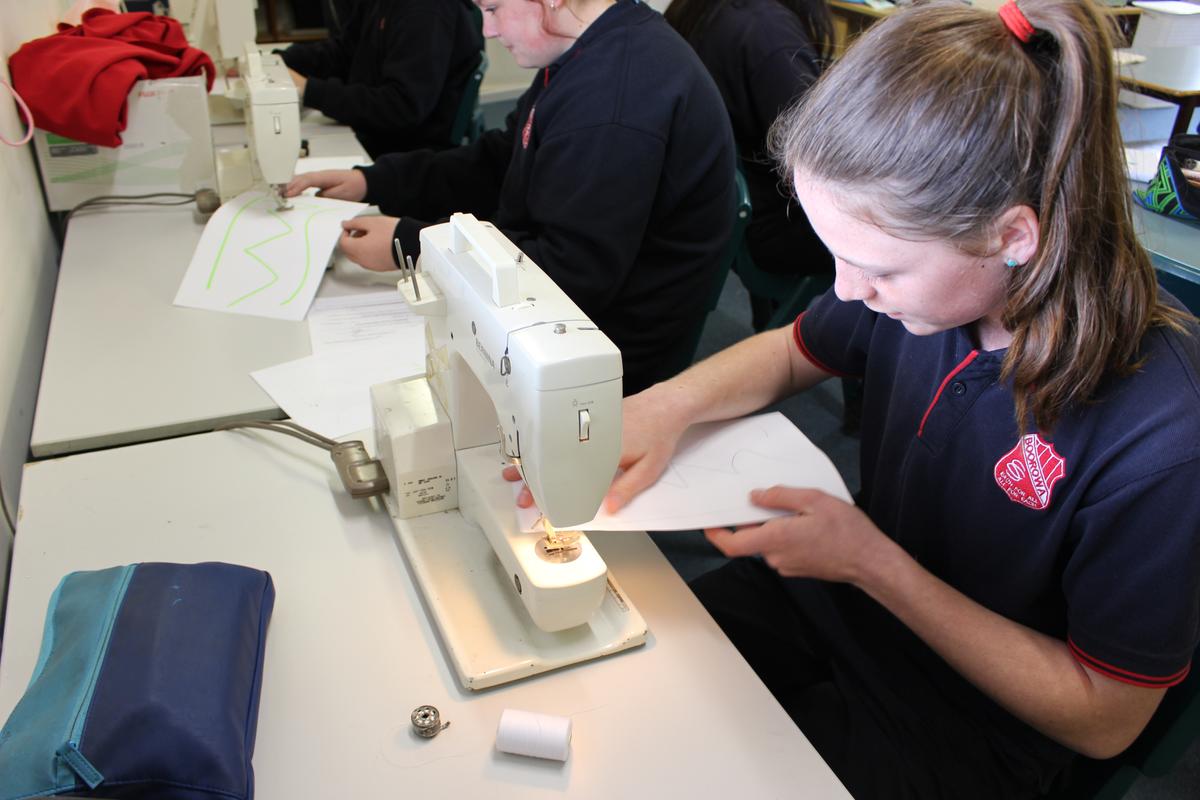
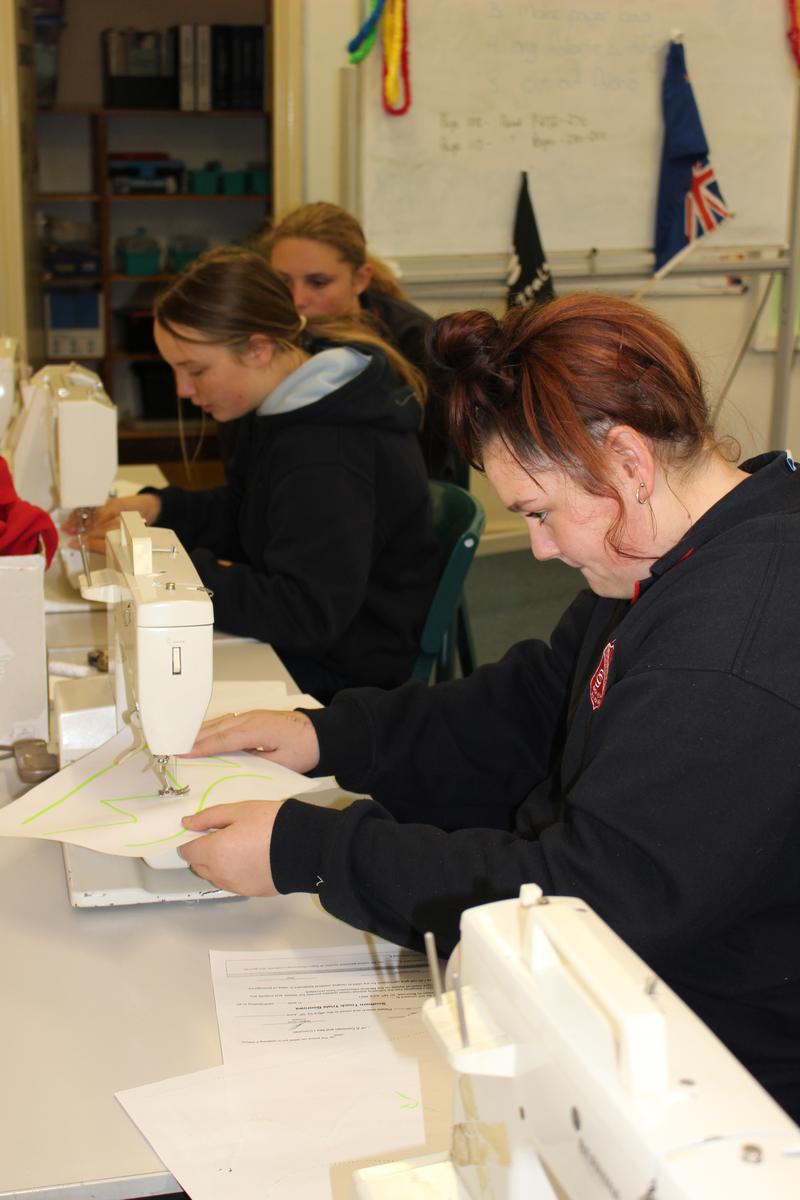
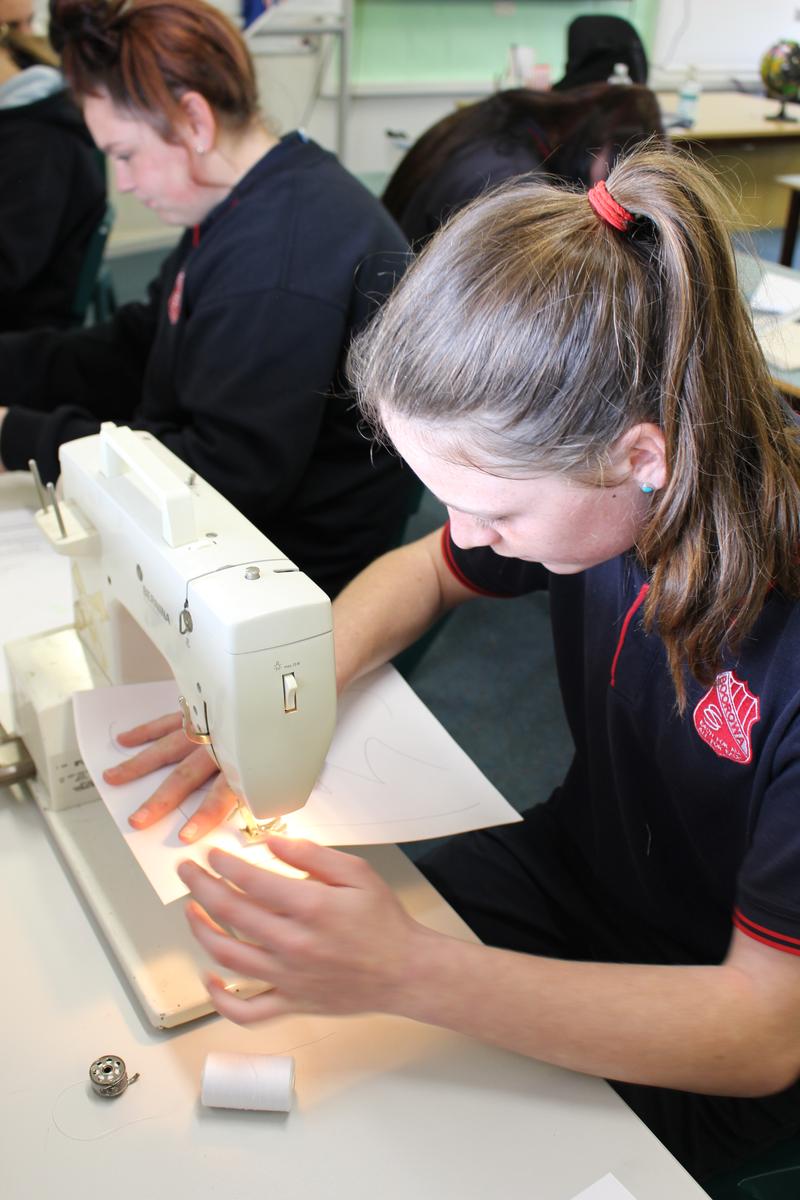
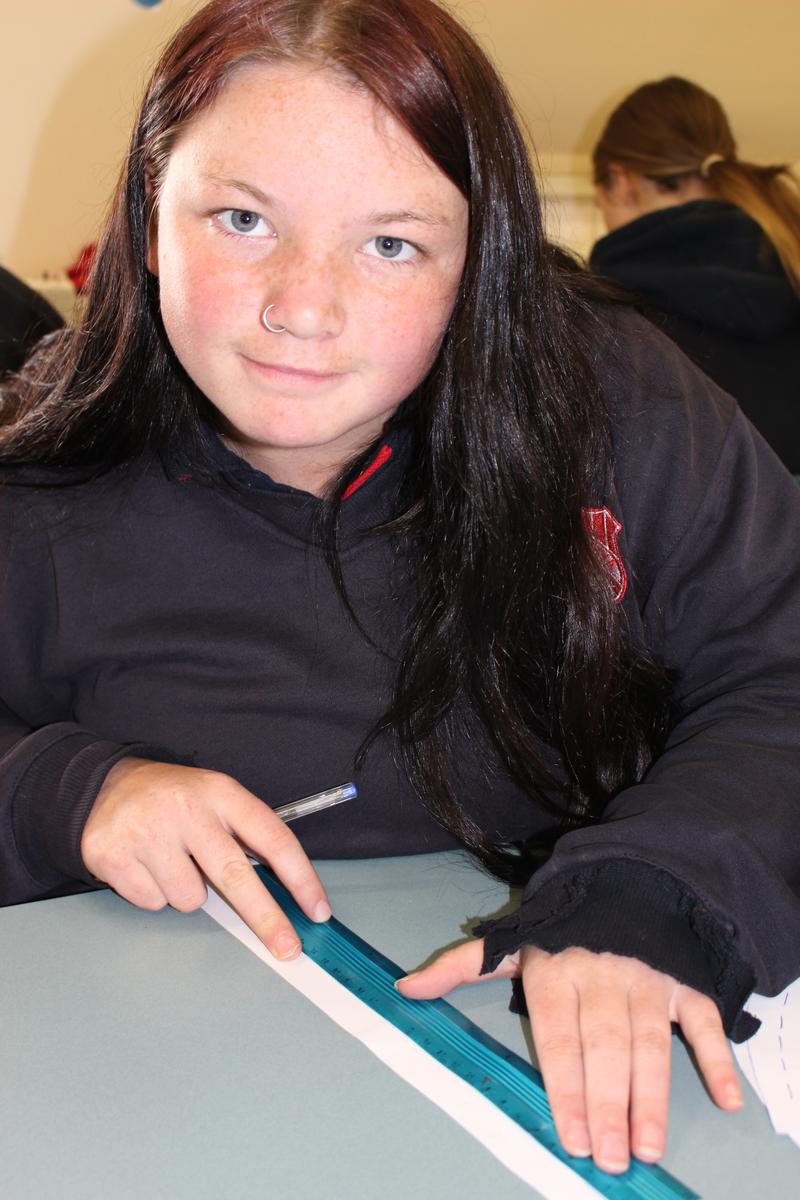
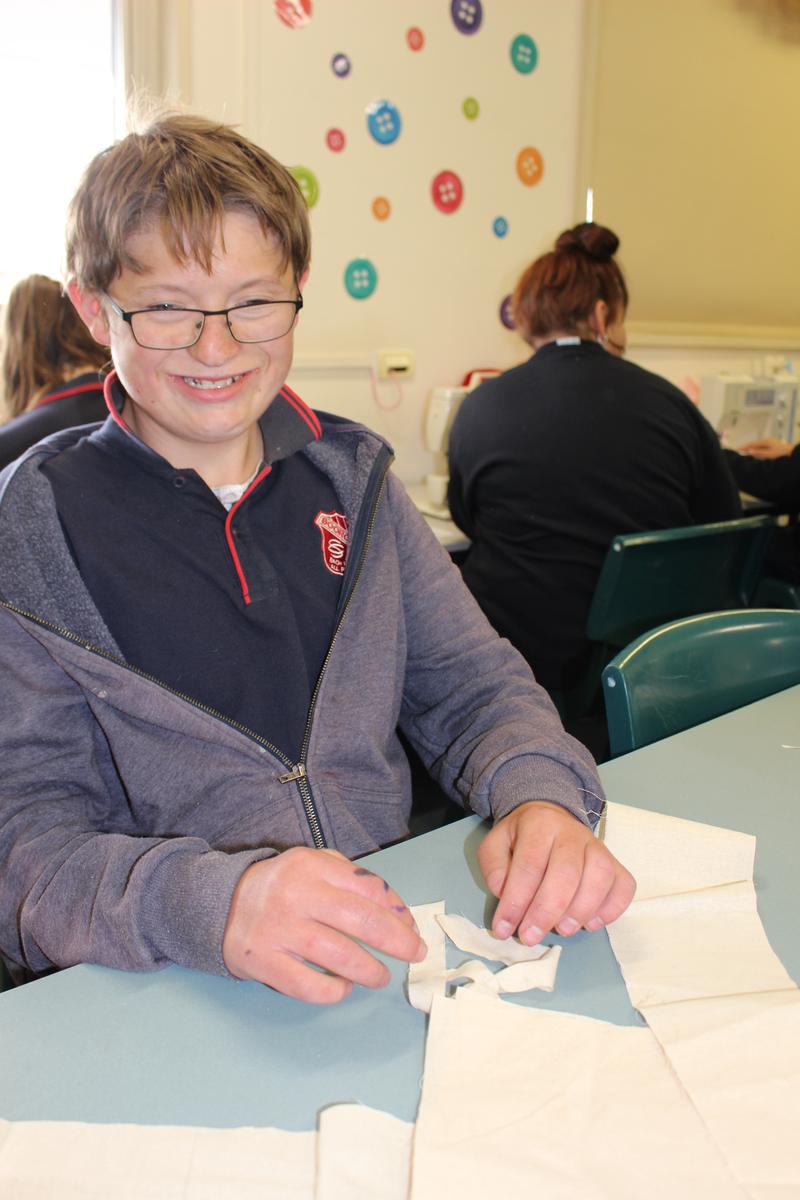
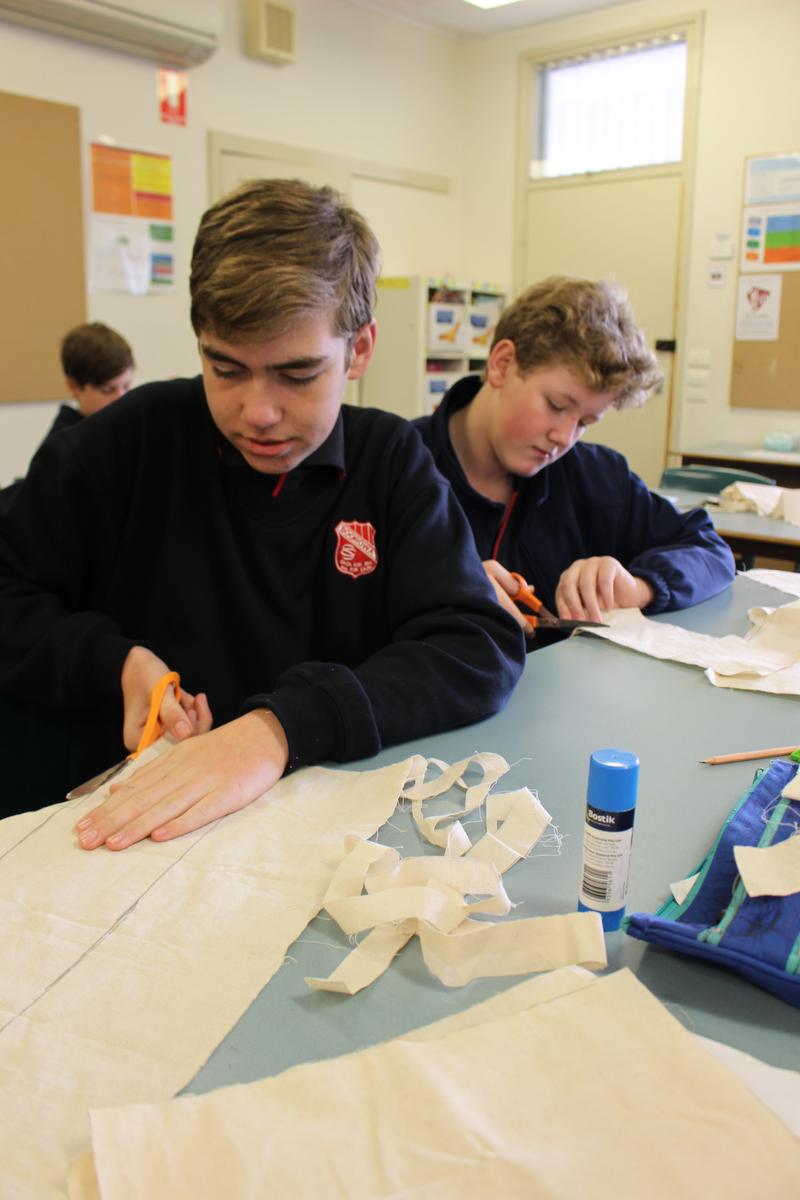
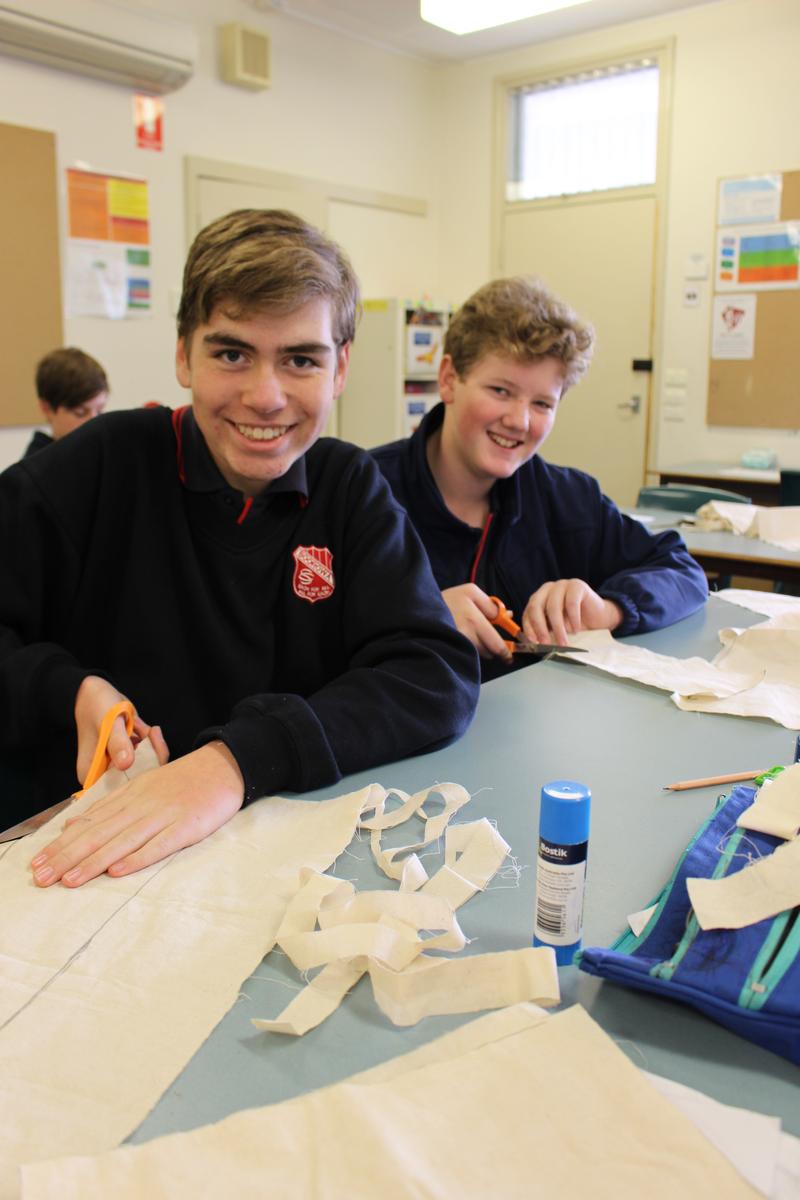
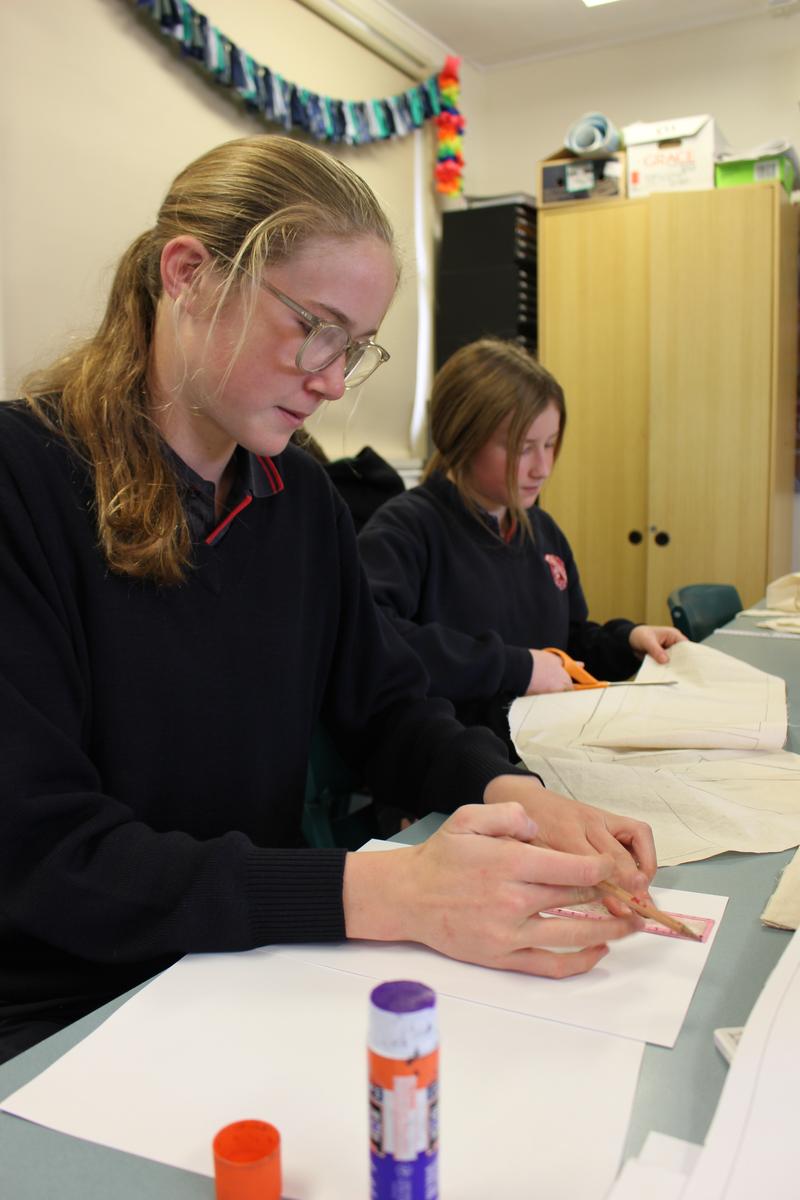
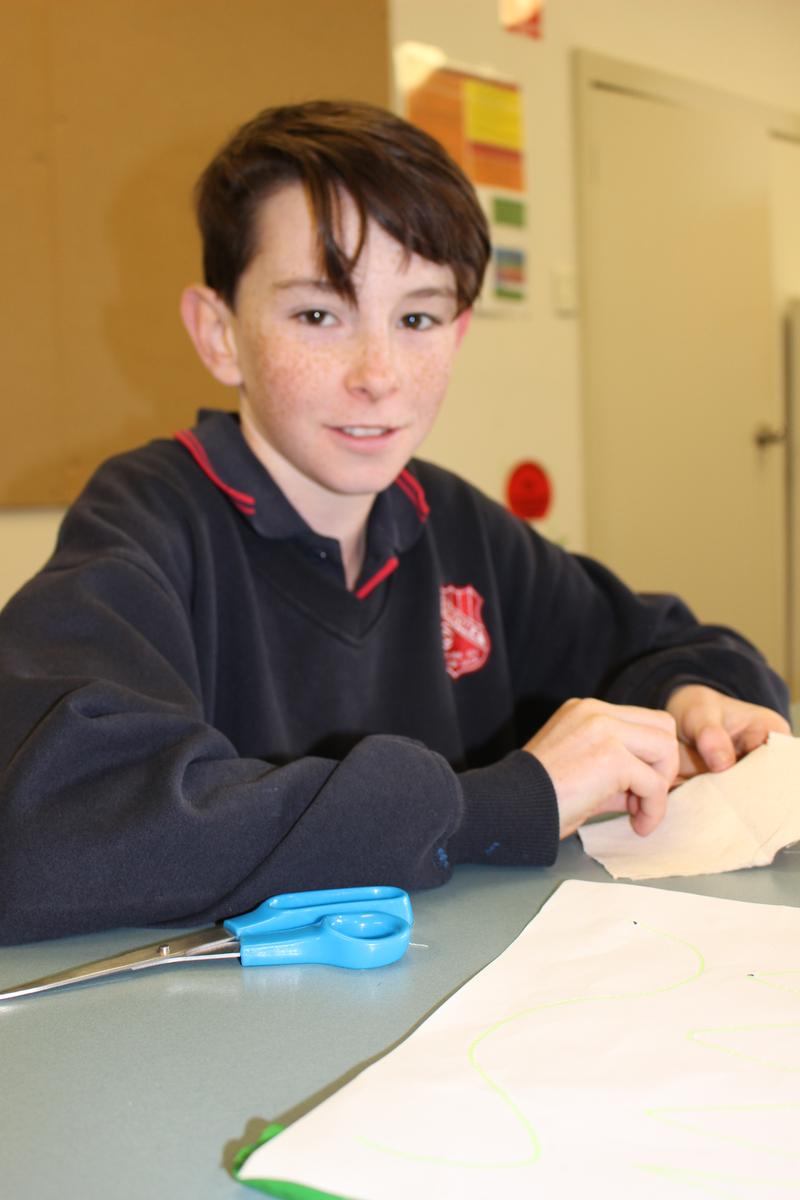
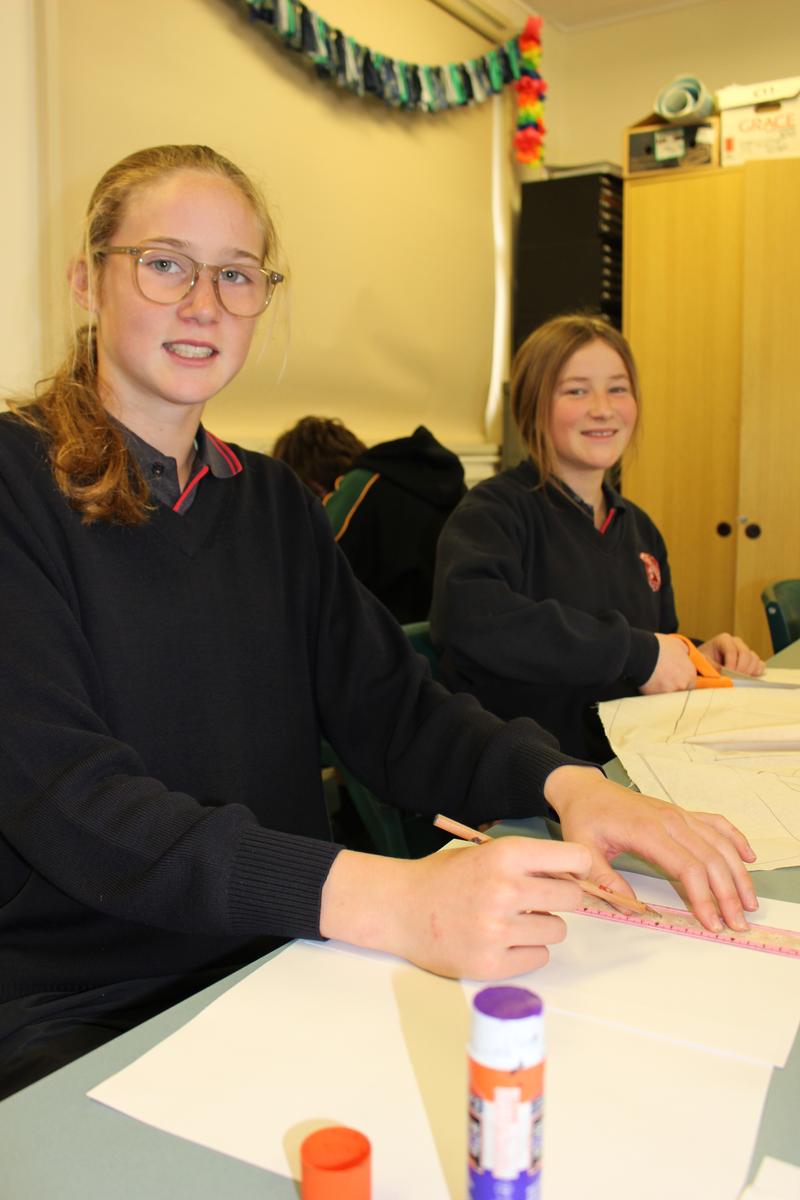
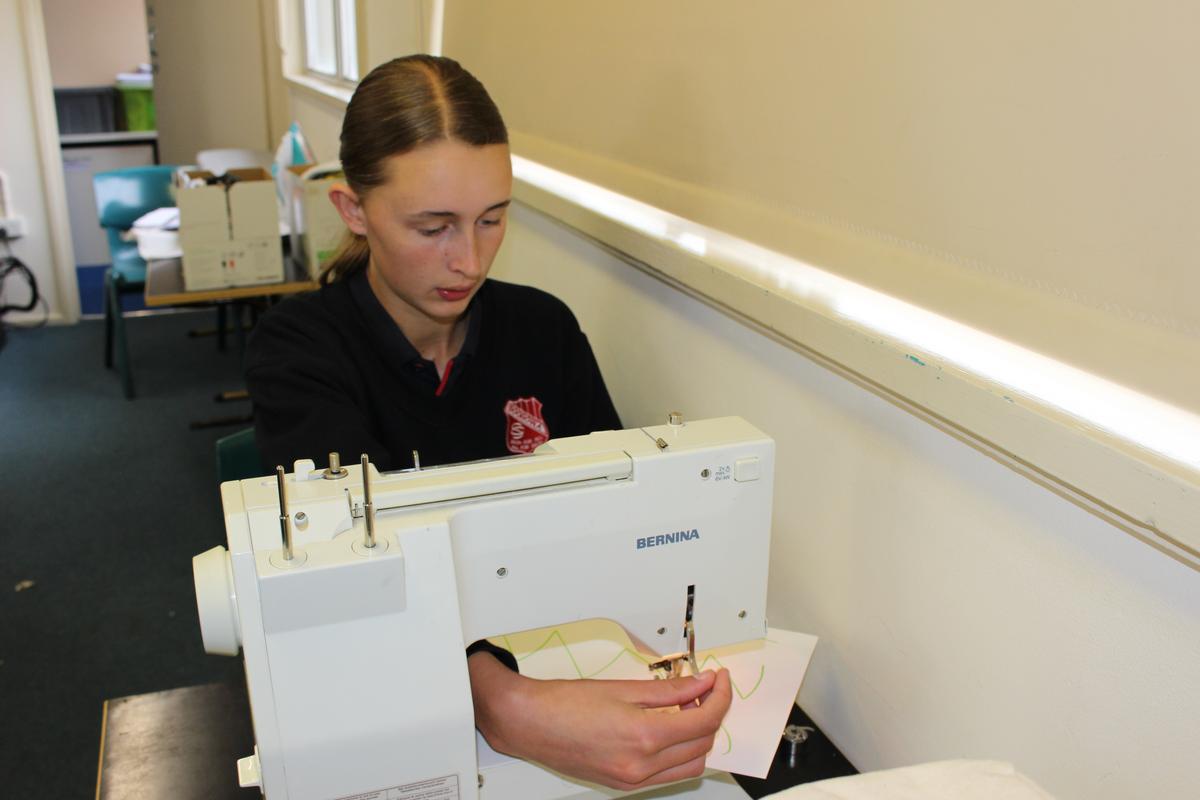
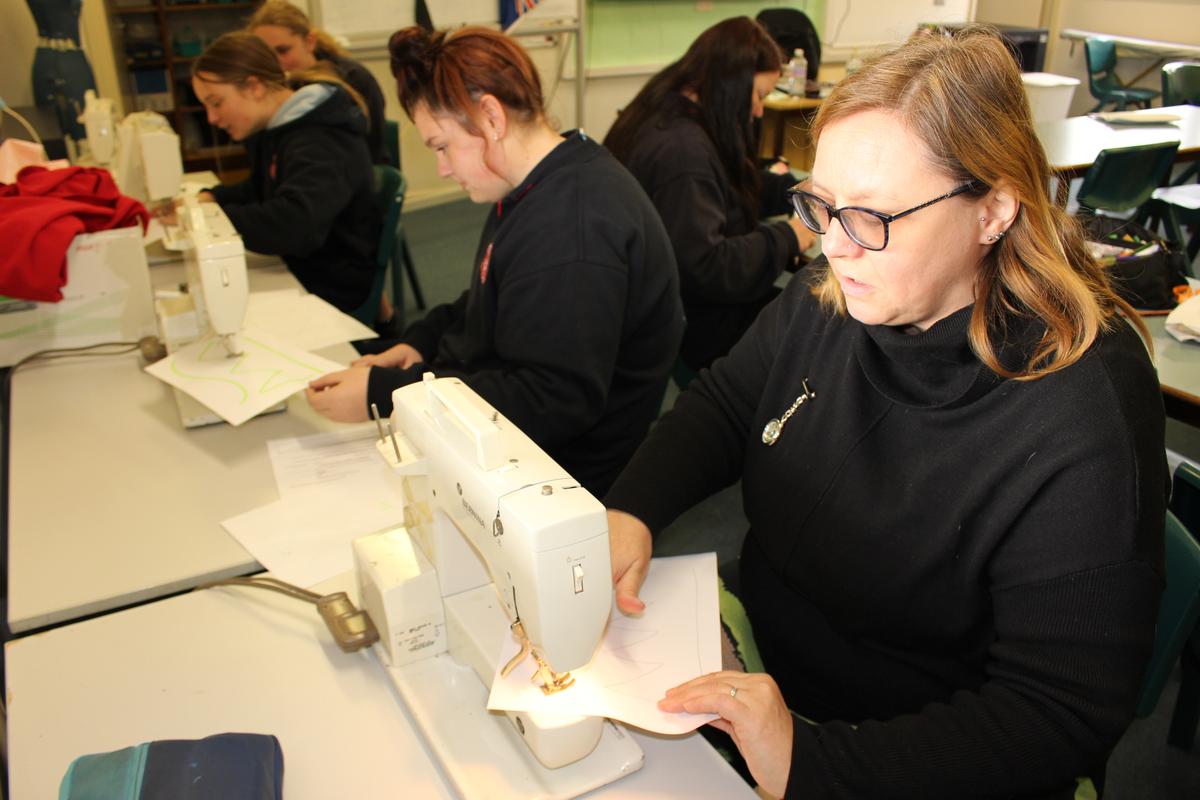
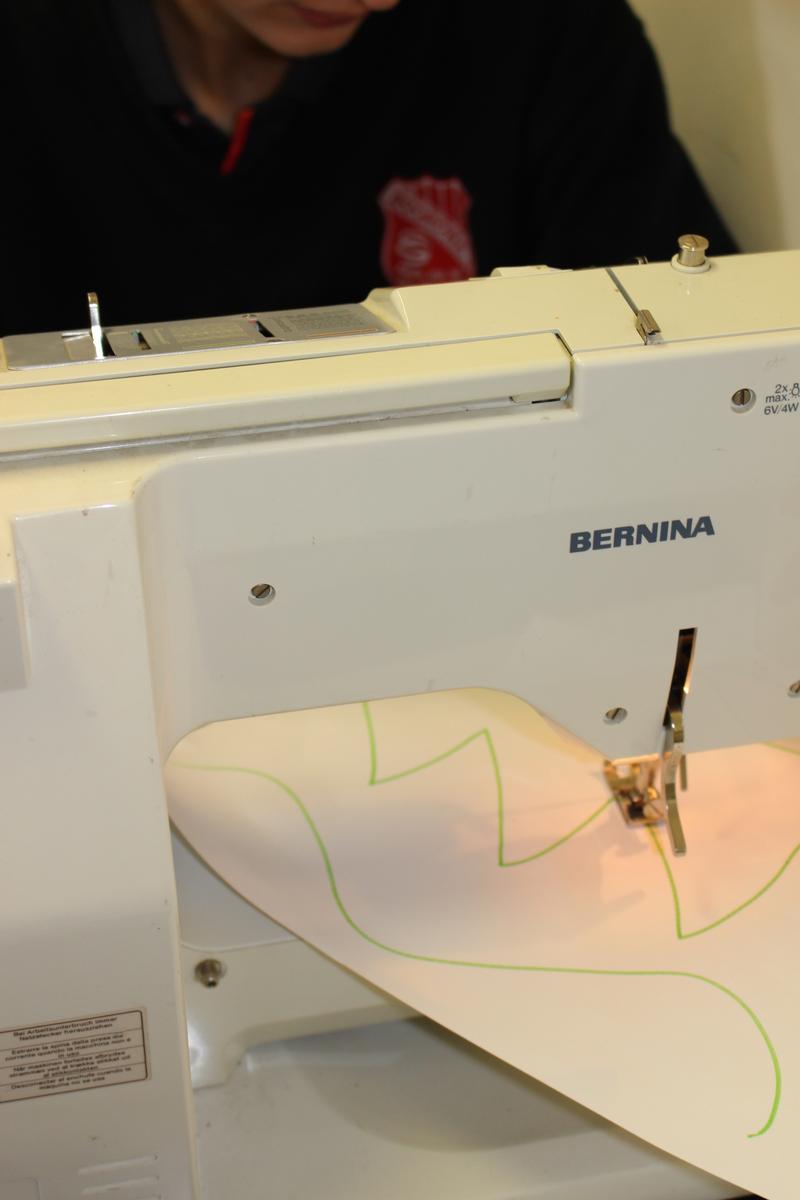
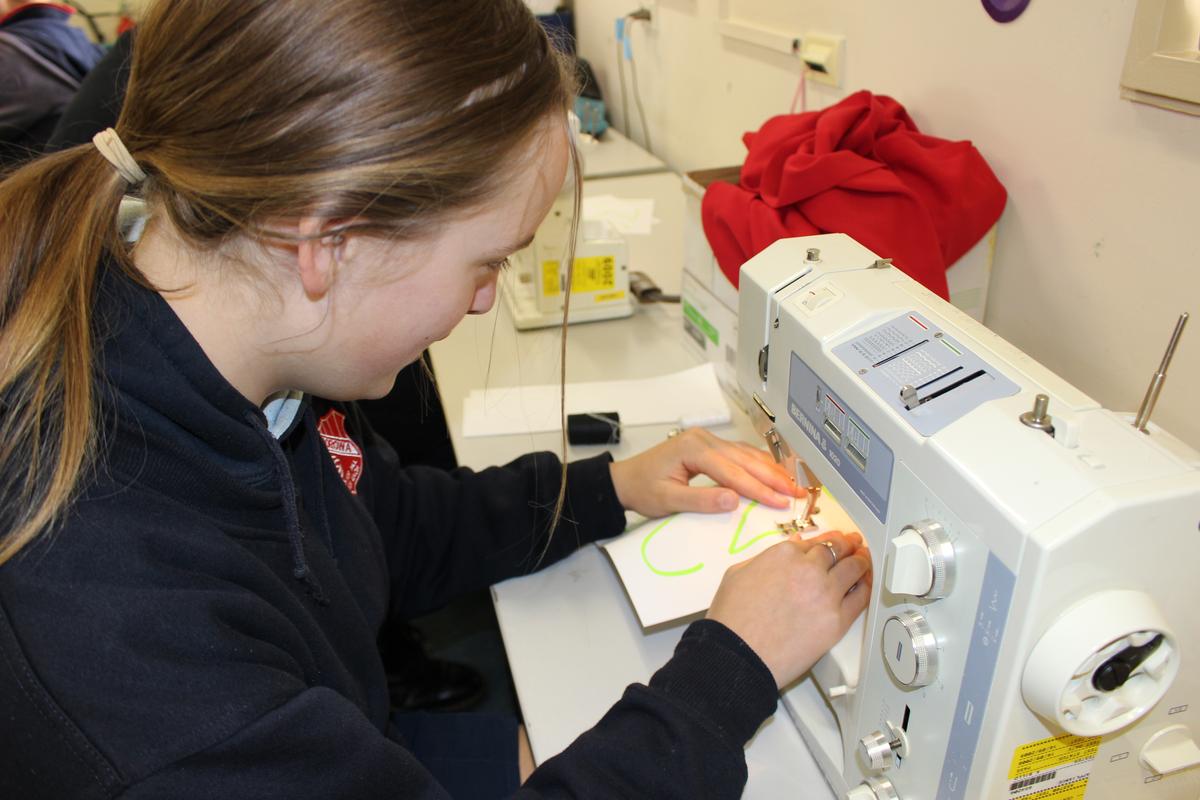
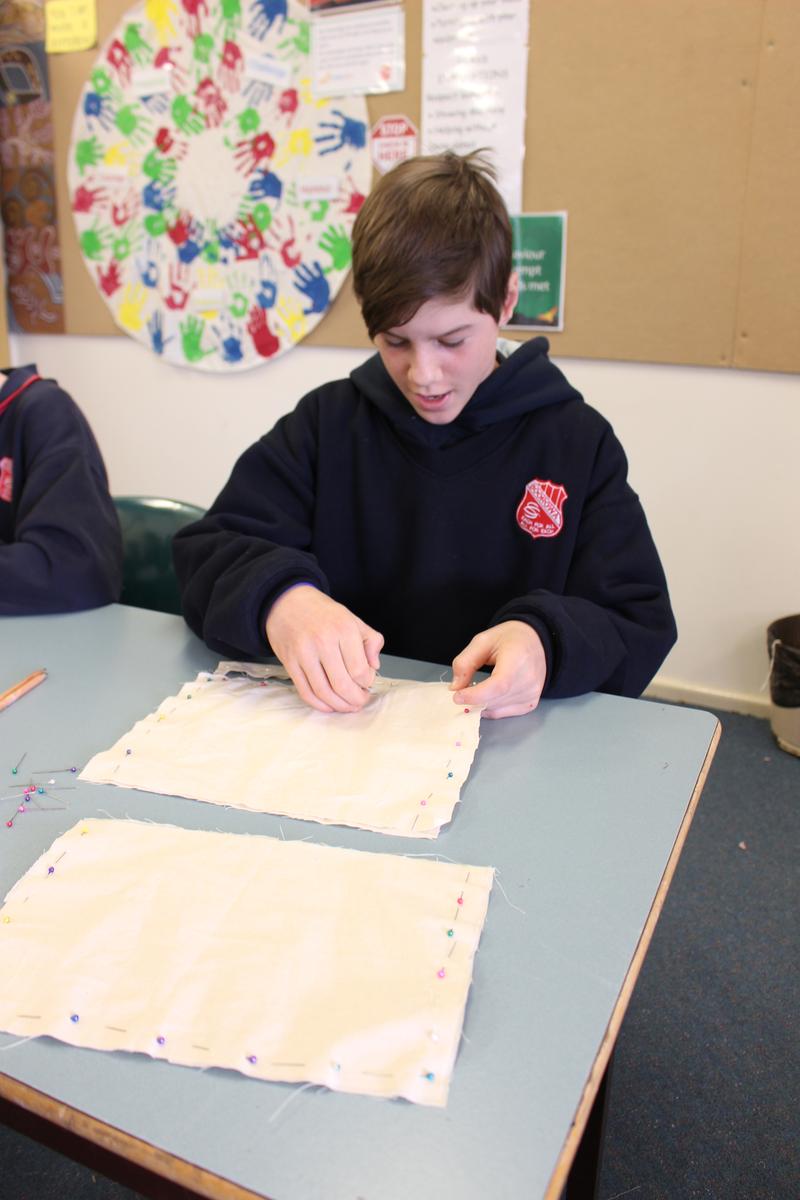















As you can see from the photos, they are all working hard to design something spectacular!
Mrs Willow Bridge I Technology Mandatory Teacher
This term, Year 11 chemistry students have been investigating several types of chemical reactions and what drives them to occur. They have had to extend themselves memorising the valances of the elements and then utilise these to balance chemical equations. In the photos, the girls are mixing different ionic salt solutions to see whether a precipitate forms.
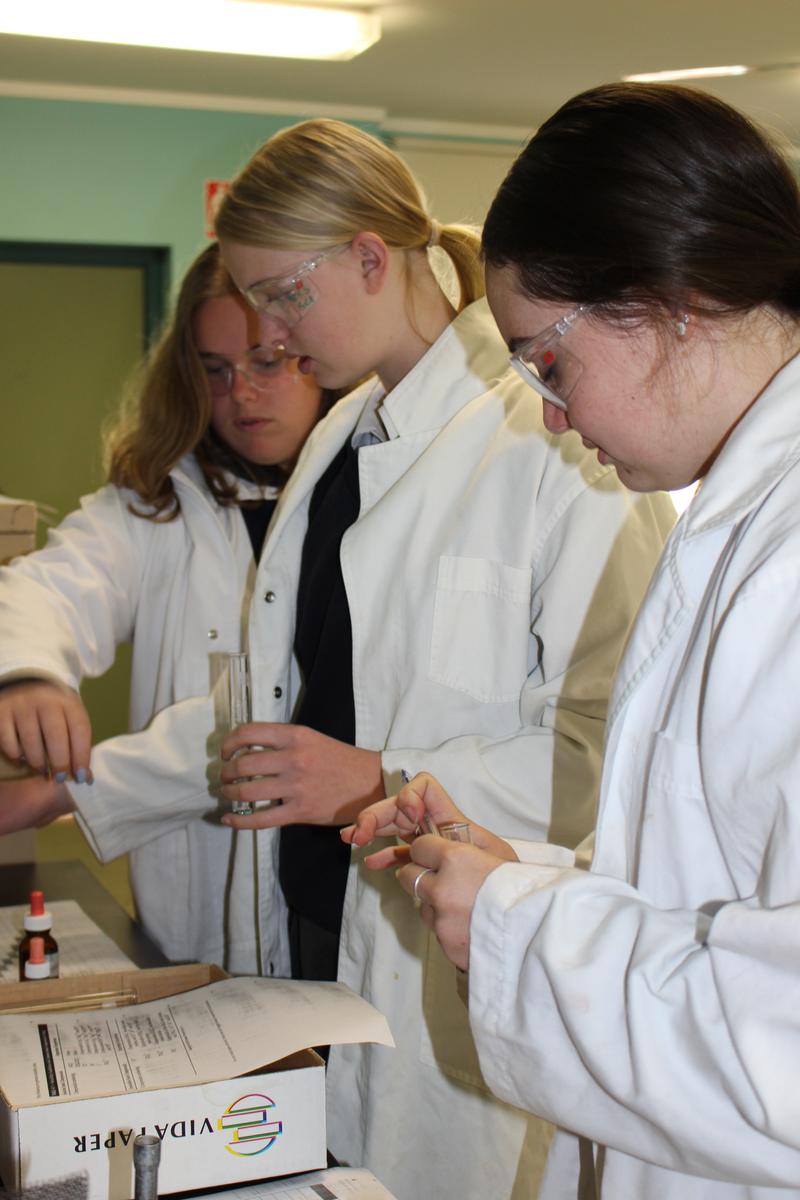
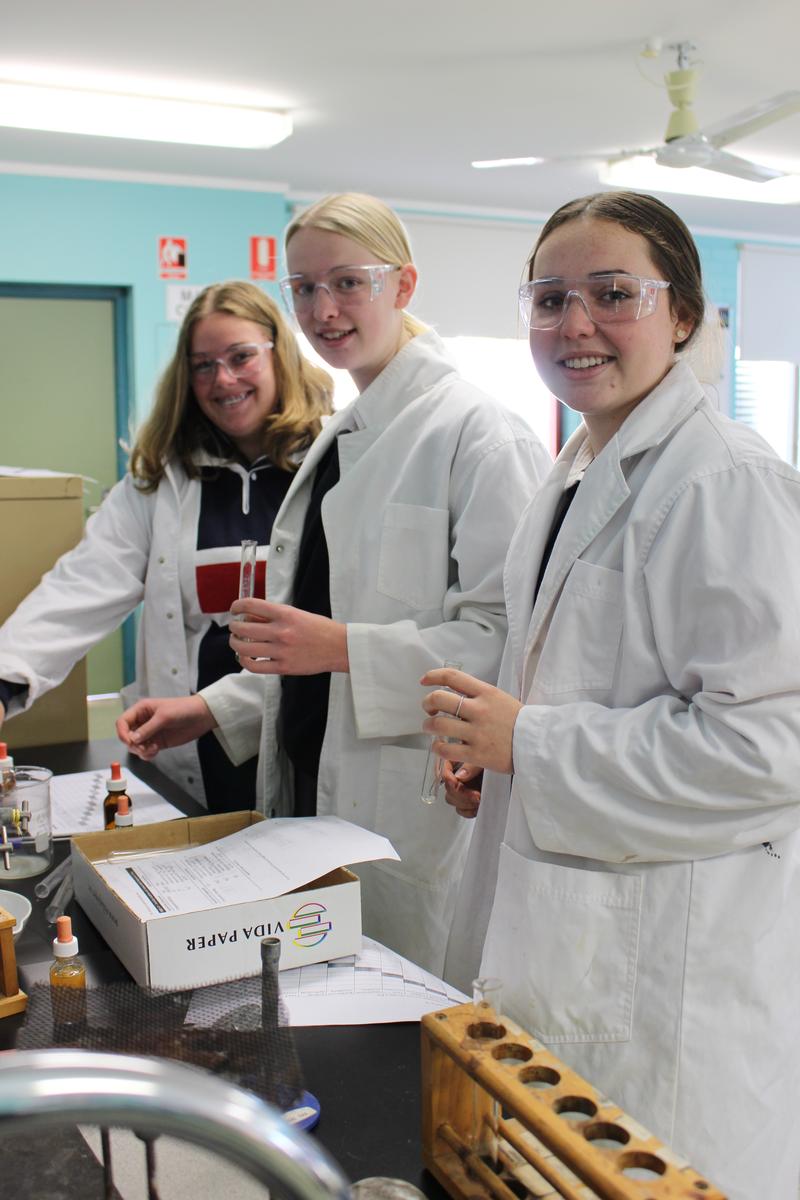
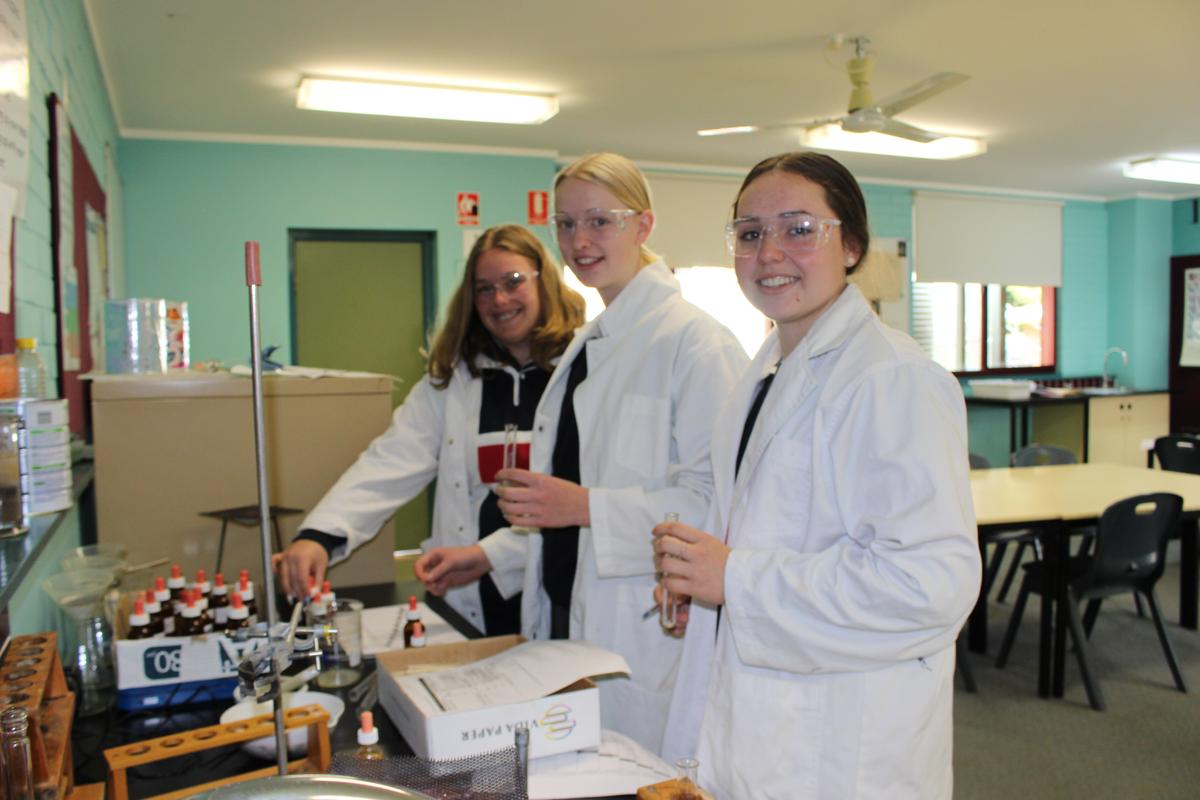
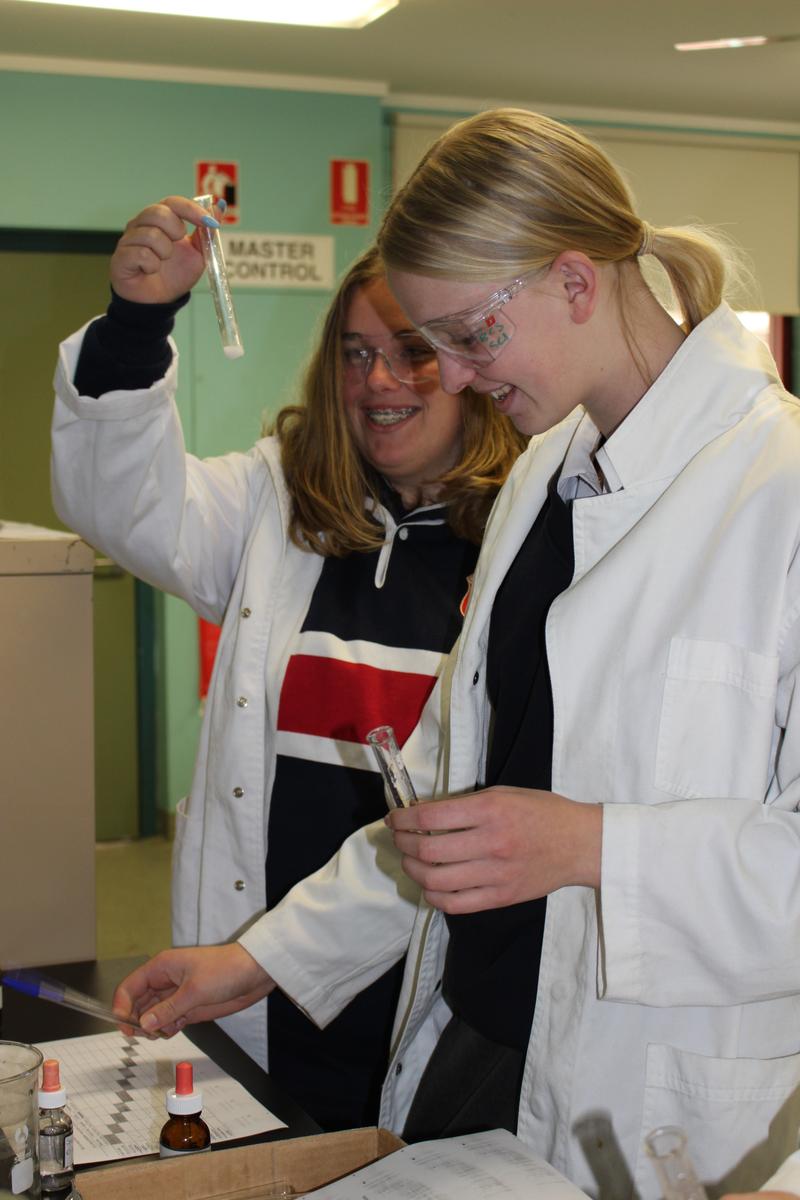
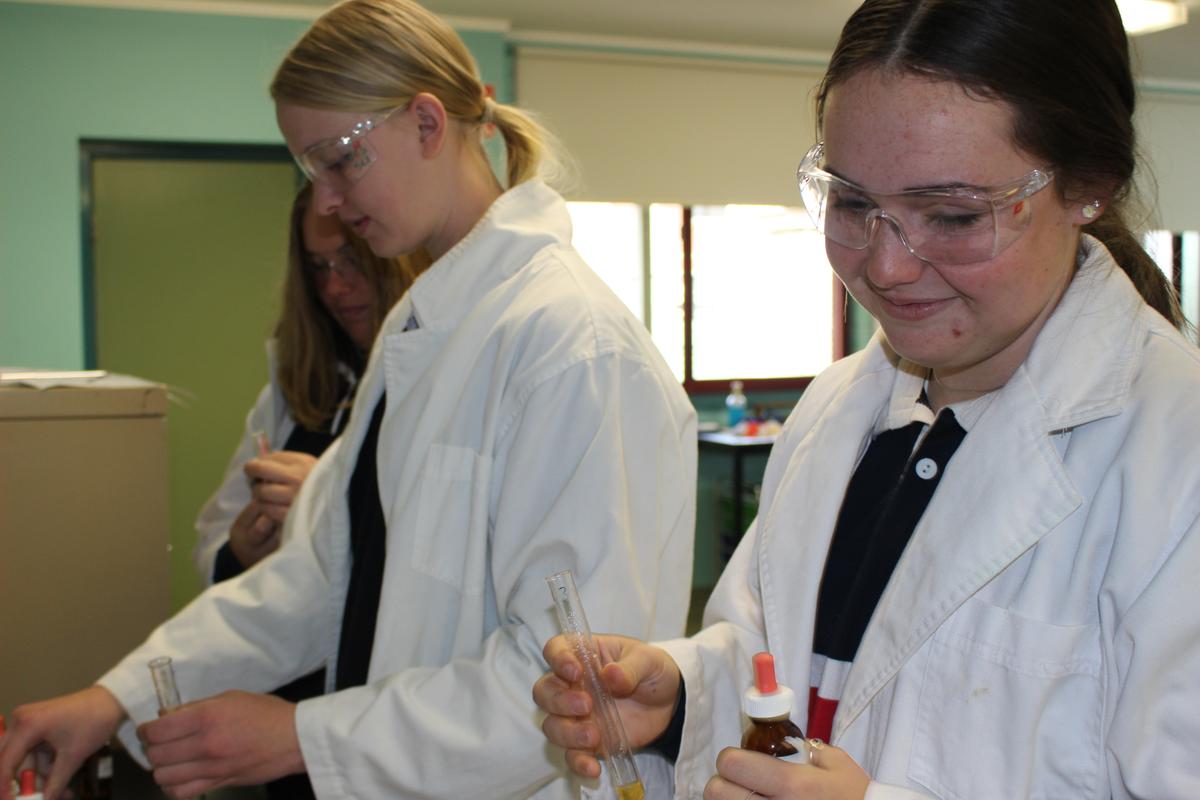





They initially had to predict if a reaction would occur referencing the solubility table and then perform the experiment to confirm the result. It was a challenging task, however, the girls succeeded in understanding the drivers and outcomes behind the concept.
Mr Andrew Corcoran I Head Teacher - Agriculture, Mathematics, PDHPE and Science
This term students have been investigating the geomorphic hazards of cyclones and floods. Students had to choose a well-known cyclone or flood event in Australia and research the causes, impacts and responses and present their findings in a geographical report. They had to explain the geomorphic processes that led to the formation of their chosen cyclone or flood event; describe the location and spatial distribution (construct a map digital or hand-drawn) of where the disaster occurred, economic, social and environmental impacts of the hazard and present their findings in a geographical report. Some of the cyclones students investigated included Cyclones Tracy, Larry, Veronica, Yasi, Debbie, Mahina, Monica and Marcia. Major flood events students selected to research were the Eastern Australian Floods of March 2021, Southeast Queensland Floods Nov 2010 - Jan 2011, Murray River 1956 flood, Townsville flood in 2019 and the 1955 Hunter Valley floods. It was very interesting that one of our students' families experienced and survived Cyclone Yasi.
Stage 5 Geography students have been looking at the topic of sustainable biomes and how biomes are changed and produce food. They have investigated how humans alter biomes to produce food and the effects of these alterations for example through the removal of vegetation for agriculture, land terracing, irrigation and mining concerning the loss of biodiversity and water pollution etc. In the unit 'Biomes produce food', students had to research an agricultural crop grown in Australia, describe where it is grown, explain the environmental and ecological factors (climatic challenges) influencing the farming of their chosen agricultural crop and present these findings as an infographic. Students then had to evaluate the role and impact of technology in the farming of their crop, learning to write a geographical extended written response. In this response, they had to explain how technology is used to increase agricultural yields ,for example, innovations and advancements in farming practices.
In legal studies, this term students have been focussing on law reform and the Individual and the Law. In law reform, students studied the conditions that give rise to law reform, agencies of reform and mechanisms of reform. In 'Law reform in action' students had to explain why terra nullius was an obstacle to achieving native title and examine the roles of the High Court and federal parliament in recognising native title and what were the major Australian native title decisions. For a contemporary law reform issue, students looked at sport and the law. In the topic Part II: The individual and the law, students investigated how the law impacts individuals by referring to legal and non-legal institutions, laws and media reports. Students have learnt about rights and responsibilities, the nature of individual rights, the relationship between rights and responsibilities. In the section resolving disputes, students learnt about the roles of the federal and state police and other law enforcement agencies and how disputes between individuals: and the individual and the state can be resolved.
Mrs Ingrid Corcoran I Geography Teacher
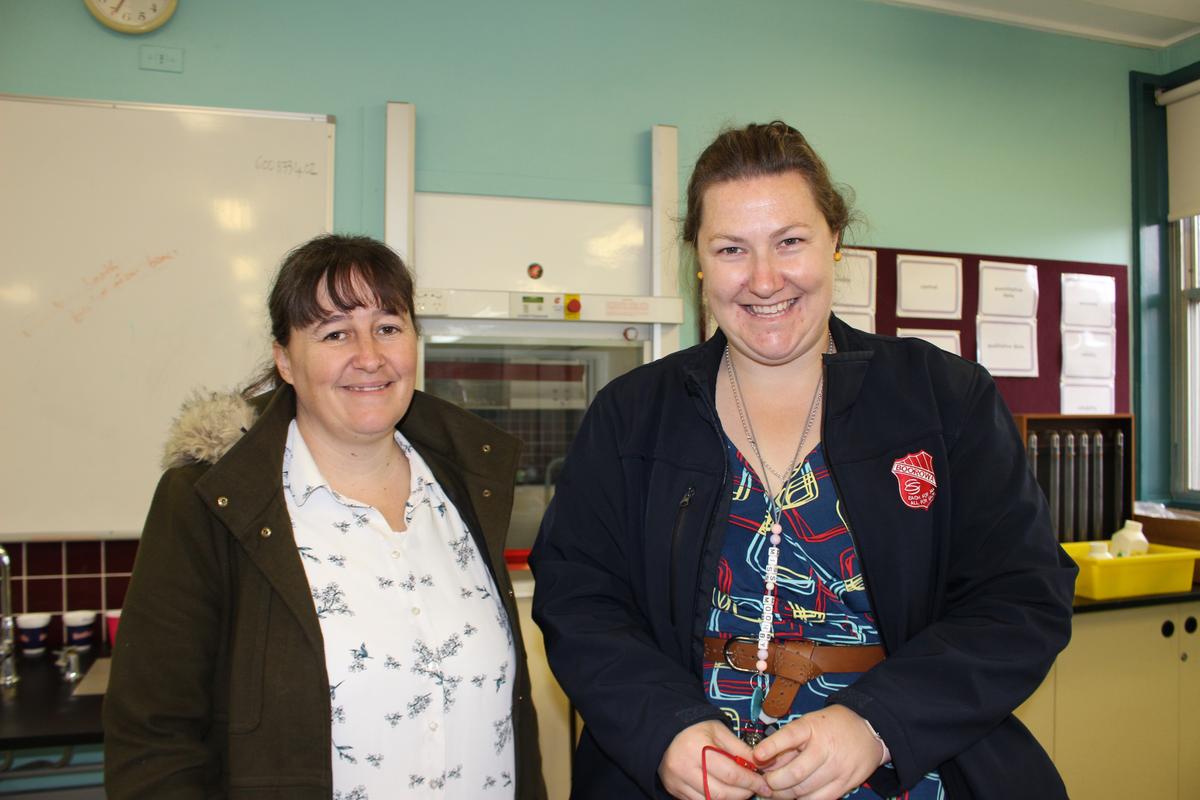

We would like to welcome Natalie Amey a Teacher Education Student, who is completing her final placement with us at Boorowa Central School in the Agriculture, Mathematics, PDHPE and Science (AMPS) faculty, working with Miss Moorby. Mrs Amey will be with us for a six-week block until the end of Week 3 in Term 3. Thank you to all the Science classes that have been under the guidance of Mrs Amey, as an up and coming teacher and a huge thank you to the staff who have volunteered their own time to assist with the development of her teaching practice.
Miss Elizabeth Moorby I Science Teacher
Students are reminded to place their merits in the Merit Mailbox as soon as they receive them.
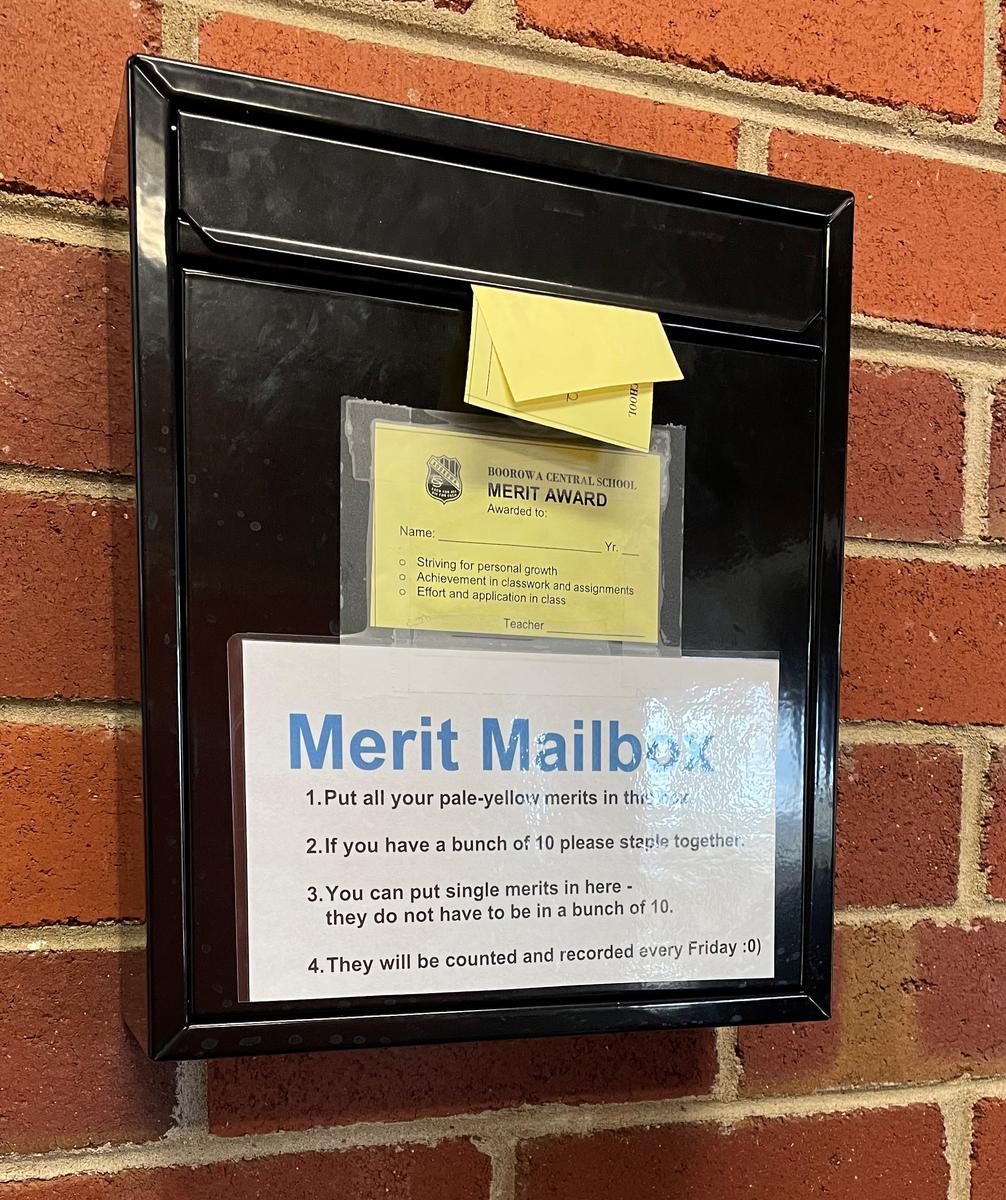

This allows staff to count and organise the end of term Merit Event more efficiently.
Thank you I Merit Scheme Team